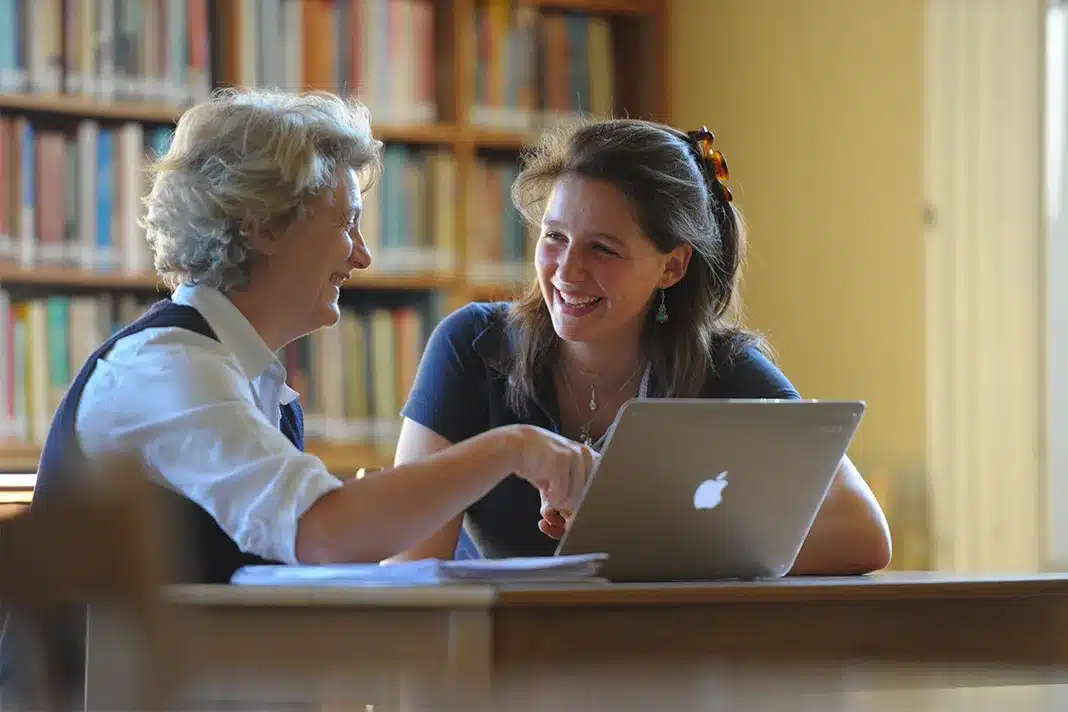Absolutely London is media partners with Bryanston School for its up-coming Education Summit. Here the founder of researchED, Tom Bennett writes exclusively for Absolutely…
Words Tom Bennett
Does a Good Education Need Good Evidence?
Are you a visual learner? Or an auditory one? Or kinaesthetic? The truth is, you are none of these. That’s not to say you don’t have preferences, but there is literally no evidence to suggest that people’s minds learn in different ways from one another in the way that VAK modalities suggest. Broadly speaking we all share a similar mechanism for learning.
We’re rightly proud of the advances we’ve made in medicine and public health. Infant mortality, life expectancy, quality of life, dentistry… these have all been transformed by science. Whenever someone asks ‘What century would you like to live in?’ the answer has to be, ‘any time after they invented painkillers and dentistry’; George Washington had wooden teeth for God’s sake. And when science started to unfold on a grand scale, did you know that many in the medical profession initially resisted it? Their reason was that ‘I know my patient better than any pill or drug trial.’ And people died of needless, preventable infections because surgeons refused to wash their hands after handling corpses and before surgery. They were gentlemen, you see, and their hands were always clean, it was thought. And you hear exactly the same in schools throughout the world.
But here’s a thing: everyone agrees how important education is. Countries around the globe are pouring money into education, even in contracting economies. So why haven’t we fixed education yet? Physics and chemistry and natural sciences have landed lasers on Mars. Where is the equivalent marvel in education? Why do so many of our students leave school illiterate? Drop out? Or just plain fail to squeeze every drop of benefit from their education?
Because often, we’re doing the wrong things. We’re doing it because we have a hunch. Because that’s how the school up the road does it. Because they do it in Finland. Or Singapore. Or it feels right. Or you read it in a horoscope. Or your trainer said ‘do it this way’.
And sometimes it’s right. Sometimes craft is enough. Sometimes, just knowing your student is enough. And sometimes it isn’t. Sometimes you’re prescribing leeches when they need antibiotics. Folk medicine wasn’t enough, and folk education isn’t enough. Educating children is a craft. It’s an art. But it’s also something we can study scientifically in a structured way. And this helps us escape our hunches and prejudices and biases. It allows us to share our craft collectively in a way that challenges and reinforces what we all do.
Frankenscience and folk teaching
Here are just some of the subjects of educational discourse that were once common, or still are:
•Brain gym
•Learning styles
•Group work
•Project-based learning
•Play-based learning
•Learning through smell
•Thinking hats
•Multiple intelligences
•iPad revolutions
•NLP
All of these have been all the rage at some point. Some of them are just junk – learning styles, for example. Others are horribly misinterpreted – group work, project based learning etc. Others have been oversold. Understanding which ones are garbage and which ones work, and in what contexts, is key to being a professional educator.
What can we do? We should start by remembering to ask ‘Where is the evidence for this decision?’ It’s a revolutionary act. If the answer is ‘none’, then fine: we know where we stand and we know what to say when things go wrong. We should also say, ‘How will we know this plan is working?’ more often so we can be clear when it doesn’t.
There is nothing intrinsically wrong with doing something because you believe it is valuable by itself – like having art or dance in the curriculum. But we need to acknowledge when something is done as an expression of managerial or ideological preference rather than clear-eyed outcome-focused strategy.
One thing we’ve seen in the UK is the rise of the Research Lead. Most members of staff are too busy to really delve into research, and besides, it’s such a complex field you can barely do anything more than scrape the surface. We can get around this in schools by nominating, or electing a research lead, someone whose role is to act as a gatekeeper for research, either as a coach, a reference, a devil’s advocate, or whatever.
The evidence-informed school
Schools that are evidence informed allow their staff to ask these difficult questions. They encourage new staff to be trained in ways that have evidence bases rather than just, ‘Oh Professor X is free, he can do it.’ And they can seek to train their staff continuously throughout their careers in ways that are evidence informed, not folk informed. Anyone concerned about cost should see it as an investment. We can’t afford not to do it. We can’t afford to keep doing what we’ve always done and ask after a decade, ‘Why hasn’t this worked yet?’ Children need us to be better than that.
Reclaiming the profession from the ground up

And that has been my key takeaway from all of this. Education is one of the most transformational things we can be part of. It is, in my opinion, the best machine we ever invented. There is no sector like it and it has saved me. Surely, then, it’s clear that children are our most precious cargo in life? It is our duty to make sure that whatever their rank or social circumstance, they all receive the very best of what we can teach them, taught in a way that is the very best way we know. We are on the edge of a revolution in education; a polite one perhaps, but a revolution nonetheless. And the best part is we can do it ourselves. We just need the courage to commit to challenging what we think we know with what others know, and collaborating with one another for the mutual benefit of all. No more cargo cults. No more Frankenlessons.
Tom Bennett, the founder of researchED, a non-profit organisation dedicated to raising research literacy in the education ecosystem across the globe. To find out more please visit researchED.org.uk
Visit bryanston.co.uk/educationsummit to register for the 2018 Bryanston Education Summit. Follow @bryedusummit to get updates on the event and continue the conversation.








